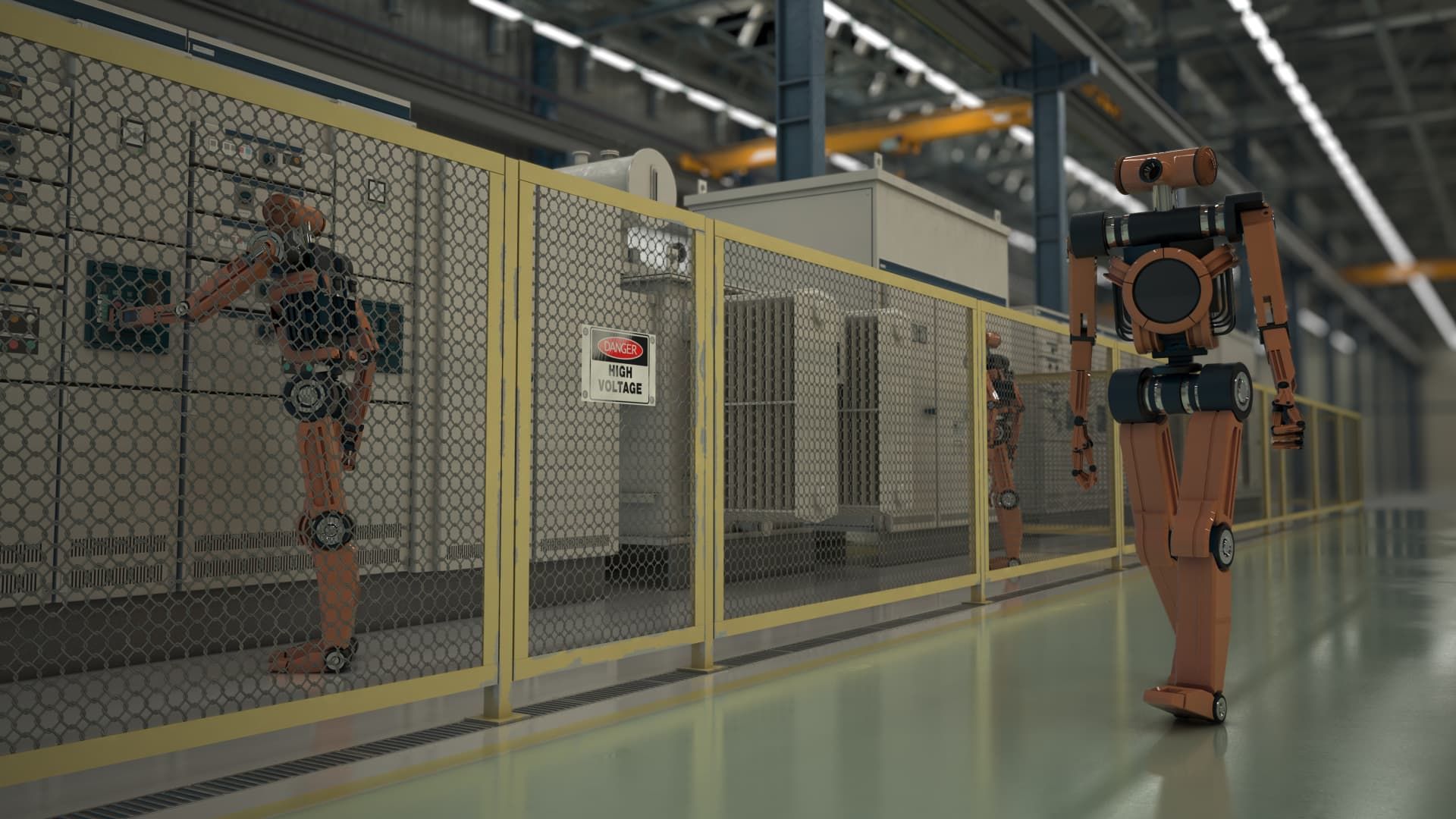3alexd | E+ | fake images
A humanoid robotics startup co-founded by the CEO of bankrupt fintech company Synapse has canvassed Silicon Valley investors for funds, citing close ties and an imminent investment from General Motors — claims rejected by the car manufacturer.
The company, called Foundation Robotics Labs, is seeking the final $1 million in funding for an $11 million seed round, according to documents obtained by CNBC. The investor pitch stated that GM had already committed to making an investment, along with Menlo Park-based venture capital firm Tribe Capital.
“The foundation is building humanoid robots to take over the work that humans do in factories, warehouses and, eventually, homes,” the startup stated.
In addition to the initial investment, the fundraising document said that GM was going to be the Foundation's first customer, with a planned purchase order of $300 million, and had also provided access to its factories to help them train their robots.
“GM agreed to allow us to collect real-world data at its factories,” the Foundation said in the document. “Our team is at their factory in Mexico this week to start the collection process. We would probably be the only company in this space with a data set like this.”
'Fabricated' claims
But, according to GM and one of the startup's founders, most of the Foundation's claims related to the automaker are exaggerated or false.
While GM has met with Foundation executives several times, it has not permitted data collection from its factories, has no agreements for robot orders and is not planning any investments, according to a GM spokesperson.
“GM has never invested in Foundation Robotics and has no plans to do so,” spokesman Darryll Harrison said in an emailed statement. “In fact, GM has never had any agreement of any kind with the company. Any claims to the contrary are fabricated.”
In a phone interview with CNBC, one of the Foundation's co-founders, Mike LeBlanc, confirmed GM's points and said he was embarrassed that there were marketing materials that exaggerated their relationship.
“The engineering work we've done is truly incredible and is the foundation of what this company will be,” LeBlanc said. “To me, that's Foundation Robotics.”
New Foundation
The foundation was started in April by Synapse CEO Sankaet Pathak, Tribe Capital CEO Arjun Sethi, and LeBlanc, co-founder of Cobalt Robotics, a maker of autonomous security guards, according to the company's fundraising pitch. the company.
It's raising money at a time when U.S. corporations are looking to automate more of their work: 25% of industrial companies' capital spending in the coming years will go toward automated systems, according to McKinsey.
The misleading fundraising pitch was shared in an email group with about 1,500 startup executives and investors this month, according to one of the recipients. The contents of the document were confirmed by someone with direct knowledge of Tribe Capital.
Tribe Capital and its co-founder Sethi declined to comment, while Pathak did not respond to messages seeking comment.
FinTech Collapse
The robotics startup is in the spotlight after the implosion of Pathak's other company, Synapse, which enabled fintech brands like Mercury and David offer banking services by connecting you with FDIC-backed banks.
Co-founded by Pathak in 2014, Synapse went bankrupt earlier this year after some of its largest clients, including Mercury, left its platform amid disagreements over customer balances.
The disaster has left more than 100,000 Americans with a total of $265 million in deposits blocked in their accounts for more than a month, according to a trustee appointed to oversee the company's bankruptcy proceedings.
To make matters worse, there is an $85 million shortfall between what Synapse's partner banks have and what depositors are owed, and there are still no answers about what happened to the missing funds, according to the administrator.
Pathak's move to his next company, following the still-ongoing failure of Synapse, has raised eyebrows among some founders and investors in the startup community.








